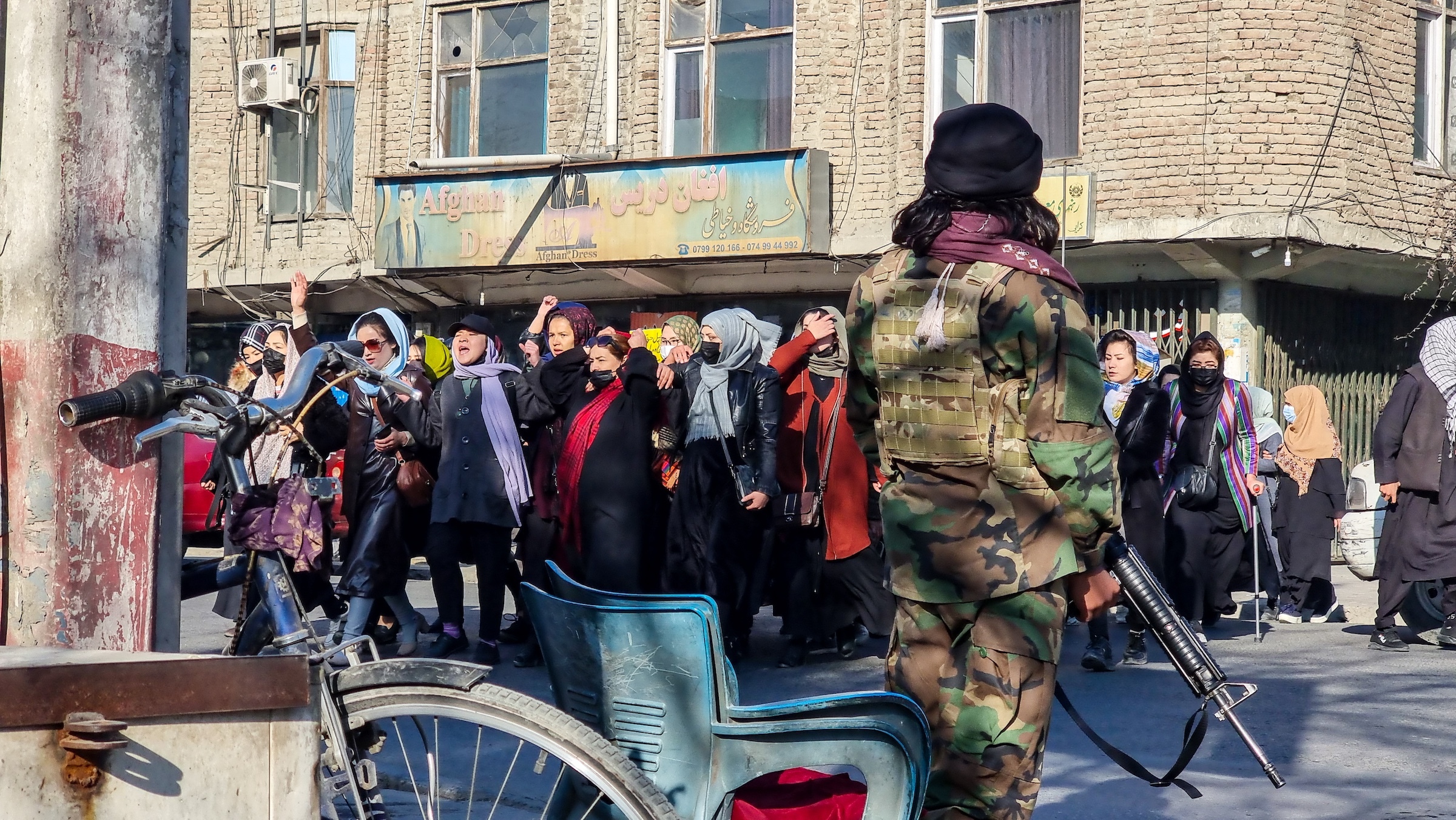The Taliban regime says it has stopped showing images of living beings in some Afghan provinces, raising concerns about the future of the nation’s press freedom.
Saiful Islam Khyber, spokesperson for Afghanistan’s Ministry for the Propagation of Virtue and the Prevention of Vice (PVPV), said that media in the provinces of Takhar, Maidan Wardak, and Kandahar had been instructed not to publicize images of any beings “with a soul — meaning people and animals” as it violates the regime’s interpretation of Sharia law, according to the Associated Press.
The move is part of new laws enacted by the ministry in August that ban women from speaking and showing their bare faces in public and impose heavy restrictions revolving around daily routines, including shaving, playing music, and public transportation.
Since the Taliban seized control of Afghanistan’s government in 2021, human rights organizations have sounded alarms over escalating threats to individual freedoms and rising cases of crimes against humanity that have acutely affected women and girls, and marginalized religious and ethnic minority groups. Coinciding with this crackdown, the country’s state-run media outlets have been increasingly repressed, forcing journalists to report in exile, according to the media watchdog Reporters Without Borders. It ranked Afghanistan as the third worst country for journalistic freedom in its 2024 World Press Freedom Index, which annually measures levels of press freedom across 180 countries.
Khyber told Agence France-Presse yesterday that “the law applies to all Afghanistan … and it will be implemented gradually.”
“Until now, regarding the articles of the law related to media, there are ongoing efforts in many provinces to implement it but that has not started in all provinces,” Khyber continued. It is unclear when the rules will affect all media, and whether they apply to foreign outlets. The Vice and Virtue Ministry has not responded to a request for comment.
Hyperallergic spoke to Omaid Sharifi, co-founder of the grassroots Afghan street art collective ArtLords, about the new laws.
“Since I was forced out of Afghanistan on August 22, 2021 — a week after the Taliban took over Afghanistan — I have been hearing bad news every single day,” Sharifi said.
“Visual imagery is a powerful tool for communication in a country where literacy rates are still developing. By banning images of living beings, the Taliban is effectively silencing voices, erasing identities, and impeding the public’s access to critical information,” Sharifi continued, adding that the policy “severely impacts artists and cultural practitioners who have already been operating under extreme pressure, fear, torture, kidnapping, and even killing since the Taliban’s return to power.”
“It stifles creativity and sends a clear message that any form of self-expression that does not align with their ideology will not be tolerated. This not only suppresses individual artists but also deprives society of diverse perspectives and the ability to engage in meaningful discourse,” Sharifi said.

